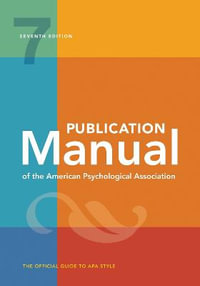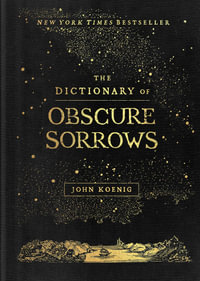Metadata has evolved from being a specialist interest to become a mainstream topic of relevance to anyone concerned with accurate and efficient information management. David Haynes has produced a clear, comprehensive and timely overview of how metadata shapes our digital age, why it's a key organisational asset and how its value can be released through the use of key standards and technologies.
This is the second edition of a pioneering work originally published in 2004. It is intended as a tutorial (rather than a how-to do book) on metadata. Its basic strength is its clarity and its sound theoretical considerations based on a deep knowledge of the relevant literature combined with a comprehensive knowledge about the application of metadata in different environments.
The author does not find that the definition of metadata as 'data about data' sufficient. He argues that to understand this new concept it is necessary to know about how informative objects or documents have been described and catalogued by the different communities that have developed specific systems and processes for this purpose. The word 'data' in 'metadata' is widely interpreted as information, information resource or information containing entity. This allows inclusion of documentary materials in different formats and on different media.
A basic view underlying this book is that metadata can only be defined and understood by its purposes or uses. This corresponds with a view that I have put forward in several publications: that the pragmatic approach to knowledge organization is the most important. It may sound trivial, but still this perspective has not broadly been understood and applied.
The book therefore contains 6 chapters devoted to 6 different purposes of metadata. With regards to information retrieval it is argued that 'metadata has a key role to play in high-quality information retrieval and is particularly important in clearly defined domains. It also plays a key role in providing users with options for searching on different attributes and for putting the search queries into context.'
The book contains fine introductions to metadata modelling, models and standards and contains 4 chapters on metadata management including 'big data' and a discussion of political and ethical issues. It has a valuable reference list, including references to many standards.
David Haynes' book presents a highly qualified and useful introduction to metadata and deserves to be used as a text in courses at iSchools and by professionals working in museums, libraries, archives, publishing houses and other contexts.
-- Birger Hjorland
David Haynes' Metadata for Information Management and Retrieval provides an excellent overview that covers all of the main issues relating to metadata and controlled vocabularies. Haynes deals with key concepts such as resource description and information retrieval in clear, practical terms, with real-life examples. The section on the politics and ethics of metadata is timely and thought-provoking. This book is a valuable resource for both students and information professionals in the age of digital libraries and big data.
-- Murtha Baca, PhD
Metadata in all its aspects. Metadata is one of those buzzwords closely associated with digital content. However, like many other catchy terms used for electronic resources, everyone talks about metadata but few understand exactly what it means! In fact, and I believe this is the reason why metadata still remains a difficult concept to be fully grasped, most of the literature published hitherto on the theme revolves around two aspects of metadata: its technical properties and existing standards - without making a clear point about the history, use, importance and impact of metadata in the management of digital collections.
This second and timely expanded edition of Metadata for Information Management and Retrieval covers, in a very accessible and straightforward language, all the fundamental points which explain why metadata is so relevant in today's electronic environment. By approaching the theme from different although complementary angles, Dr. Haynes' book makes the concept of metadata comprehensible to everyone, shedding a new light on the management and curation of digital objects. This book is an indispensable guide to be placed on our shelves!
-- Aquiles Brayner
'The book is an informative resource for those who are new to metadata and want a broad, general overview of its current standards, purposes, contexts and issues.'
-- Diane Rasmussen Pennington * Journal of Librarianship and Information Science *
'...the work effectively explains the term "metadata," is good at showing the broad range of activities where metadata serves a key role, and provides researchers with a useful guide to work done to date. Recommended...Upper-division undergraduates through faculty and professionals.'
- CHOICE
* CHOICE *
'It is as rigorous as before. It is also rewarding as a reference text for an information and knowledge management professional like myself with an enduring interest in the application of "cat and class" principles, as I expect it will be for the most scientific of metadata specialists. I can imagine the sense of professional growth information professionals will feel by giving this book the effort it deserves.'
- Dion Lindsay, Principal Consultant and Managing Director, Real Knowledge Management
* k&im REFER *
'The main focus of the book is on the context of museums, libraries, and archives. The exhaustive content will be fruitful and informative for researchers, publishers, cataloguers, and computer professionals who are interested in metadata usage for information retrieval, record management, and developing applications through metadata standards. It covers a range from basic topics to applied discussions. The book tries to explore various viewpoints related to the roles and usages of metadata in the context of different research trends like social media, big data, and linked data. Moreover, it is also useful for students new to the topic or just seeking a better understanding of metadata. It is highly recommended to be used as a tutorial on metadata.'
- Elaheh Hosseini, Department of Information Science & Knowledge Studies and Amir Ghaebi, Dean of the Faculty of Psychology & Educational Sciences, Alzahra University, Iran, INFORMATION RESEARCH
* INFORMATION RESEARCH *
'This book is recommended for students in library science and knowledge management programs for librarians and information professionals who want a concise introduction to what metadata is and the variety of uses to which it can be applied.'
- Joseph Dudley, Technical Services Quarterly
-- Joseph Dudley * Technical Services Quarterly *
























